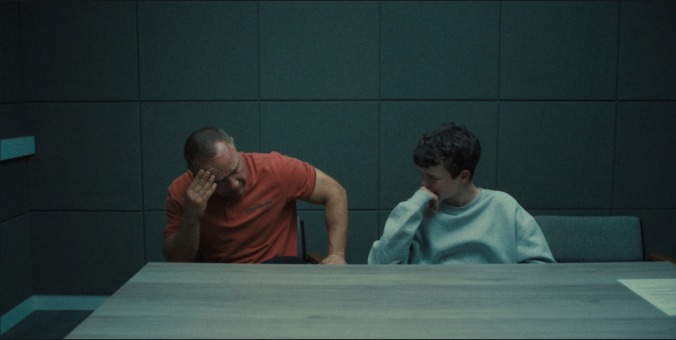How Class Plays Into the Way ‘Adolescence’ Confronts Toxic Masculinity
If it takes a village to raise a child, then it requires the same to ruin them.
Photo: Netflix EntertainmentTV
Nearly a month after its release, Adolescence has finally been booted out of Netflix’s no. 1 most-popular spot—but it remains firmly in the top 10, and continues to generate commentary, controversy, and, in schools across the U.K., some potential (if minor) paths to solving some of the problems it confronts. Since the the heart-rending, record-setting, four-part limited series about a 13-year-old boy who is arrested for stabbing a female classmate premiered in March, it’s been lauded as “unnervingly on-the-nose,” “a gutting account of murder, misogyny and teen fragility,” and “a cautionary tale of the male rage and isolation fueled by the manosphere.” But it’s not its take on the far-reaching ramifications of a fast-growing, unrepentantly hateful subculture that glorifies and preaches misogyny to a new generation of young men that remained with me after I turned off my TV. Instead, it’s the way systemic poverty—or at least a lack of wealth—exacerbates every character’s problems.
When Jamie Miller (the protagonist, portrayed by the revelation that is Owen Cooper), is confirmed guilty by the end of the first episode, Adolescence has already alluded to the fact that blame exceeds that of an impressionable, isolated teenager. It spends the next three episodes delving into the issues that contributed to the murder, including underfunded education systems, overworked parents, and, of course, the men who wield power via the internet. Jamie, it’s revealed, had been emboldened by the manosphere and, as one character succinctly puts it, “the Andrew Tate shite.” The show’s bottom line is bleak: There’s not a lot of hope for many young, male minds if the internet (and the world writ large) continues to function under the unchecked order of billionaires, edgelords, and misogynists.
Set in a working class suburb of Liverpool, England, the story begins in the Miller family’s humble two-story home on the morning of Jamie’s arrest. His father, Eddie (Stephen Graham), has just returned home from work. Eddie is an on-call plumber who works nights and weekends to sustain his family. Money troubles, as it’s established in the series, play a role not just in the Millers’ daily lives, but in Jamie’s case. Upon his arrest, Jamie has no choice but to rely on a court-appointed attorney, because the family can’t afford their own. Reminders of the family’s financial restrictions are frequent—from Jamie’s mother’s lamenting damage the police left on their home while arresting Jamie, to Eddie’s attempt to repaint his work van after it’s vandalized by local kids.
-

-

-

-

-

-

-

-

-

-

-

-

-

-

-

-

-

-

-

-

-

-

-

-

-

-

-

-

-

-

-

-

-

-

-

-

-

-

-

-








































